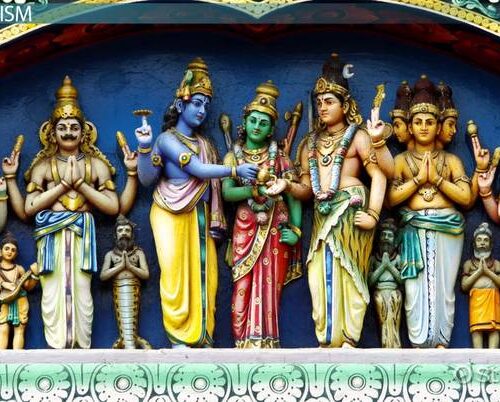In today’s world, where religion and politics often intersect, it becomes crucial to unravel the complexities that arise from the interplay between monotheism and political systems. With technological advancements shaping every aspect of our lives, it is important to critically analyze their ethical implications, particularly in relation to religion’s role in politics. This article aims to shed light on this intricate topic and provide beginners with a foundation to understand the dynamics between monotheism and politics.
The Intersecting Paths of Religion and Politics
Religion has long played a significant role in shaping political ideologies and governance structures across the globe. Monotheism, in particular, focuses on the belief in a single, supreme deity. This belief system often permeates political decisions and policies, influencing the social, cultural, and ethical fabric of a society. It is essential to recognize that the relationship between monotheism and politics is multi-dimensional, evolving over time and varying across different regions.
Technological Advancements and Ethical Implications
In recent years, technological advancements have revolutionized the way societies function. From advancements in communication to artificial intelligence, technology holds immense power in shaping our lives. However, these advancements also present ethical dilemmas, especially when they intersect with religious and political ideologies.
Case Study: Social Media and Political Influence
One prominent example of technology’s influence on the interplay between monotheism and politics is social media. Platforms like Facebook and Twitter have proven to be powerful tools for political mobilization and information dissemination. They allow religious groups and political parties to reach a vast audience instantly. This has led to both positive and negative implications.
On the one hand, social media has empowered marginalized voices and facilitated political movements guided by religious beliefs. The Arab Spring, for instance, saw social media playing a crucial role in bringing about political change in several Middle Eastern countries. It allowed activists to rally support for democratic ideals and mobilize the masses.
On the other hand, social media has also been a breeding ground for fake news, hate speech, and polarization. In certain instances, religious extremist ideologies and political agendas have exploited these platforms to spread misinformation and incite violence. The rise of online echo chambers has deepened divisions within societies, amplifying religious and political biases.
Navigating the Complexities and Educating Ourselves
To navigate the complexities of religion’s role in politics and its impact on technological advancements, education and critical analysis are of utmost importance. It is crucial to understand the ethical implications of technology and question its alignment with monotheistic principles and democratic values.
As beginners in the realm of technoethics, we must strive to be aware of the potential biases and pitfalls associated with the integration of religion and politics with technology. By engaging in open dialogue, questioning societal norms, and critically analyzing the ethical implications of technological advancements, we can shape a more inclusive and just society.
In conclusion, understanding the complex interplay between monotheism and politics is essential in today’s increasingly globalized world. Technological advancements have the power to shape and redefine religious and political landscapes, necessitating a critical analysis of their ethical implications. By learning from real-world case studies and educating ourselves, we can navigate the complexities and foster a more ethical integration of technology, religion, and politics.
